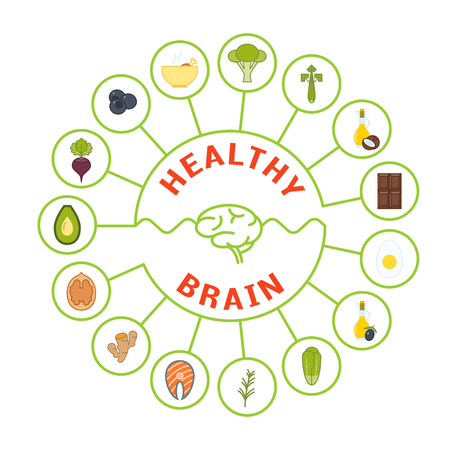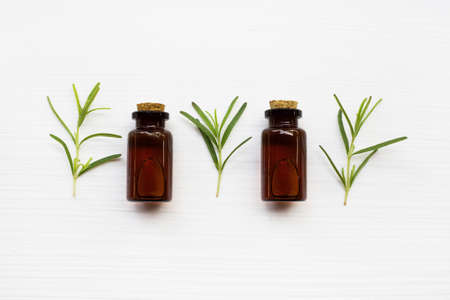Introduction to Liver Detox from an East-West Perspective
The liver, often described as the body’s natural filter, plays a vital role in maintaining our overall health. In Traditional Chinese Medicine (TCM), the liver is considered the central organ responsible for the smooth flow of Qi (vital energy) and blood, influencing emotional balance, digestion, and detoxification. According to TCM principles, when the liver is stagnant or overloaded, it may manifest as irritability, fatigue, digestive issues, or even skin problems. Western medicine also recognises the liver’s crucial function in breaking down toxins, processing nutrients, and regulating metabolism. With increasing environmental pollutants and modern lifestyle pressures, the concept of supporting the liver through natural means has gained momentum across the UK. Many Britons are now seeking gentle ways to care for their livers through dietary choices and herbal remedies rooted in both traditional wisdom and contemporary science. As awareness grows around holistic well-being, natural liver detoxification—drawing on time-honoured foods and herbs popular in British culture—offers a balanced approach that harmonises Eastern philosophies with Western practices.
2. British Dietary Staples for Natural Liver Support
In the rhythm of daily British life, traditional staples offer gentle yet effective support for liver function, harmonising body and mind in alignment with both modern nutritional science and holistic wisdom. The foundation of a natural liver detox often begins with the food on our plates—simple, accessible ingredients that have long been part of British cuisine.
Oats: A Nourishing Start
Oats, a cherished breakfast staple across the UK, are rich in soluble fibre, particularly beta-glucans. In the view of traditional medicine, oats help to clear excess dampness and support digestive harmony. From a Western perspective, their fibre content aids in removing toxins from the digestive tract, reducing the burden on the liver and encouraging its natural cleansing processes.
Apples: Gentle Balance
Another everyday hero is the humble apple. Regularly enjoyed as a snack or incorporated into classic dishes like apple crumble or sauce, apples are packed with pectin—a type of fibre that binds to heavy metals and cholesterol, helping to escort them out of the body. This action aligns with the principle of balancing internal energies and supporting smooth liver function.
Root Vegetables: Earthy Allies
British cuisine frequently features root vegetables such as carrots, parsnips, beetroot, and swede. These earthy foods are believed in traditional practices to nourish the Spleen and Liver, enhancing circulation and detoxification. Beetroot, for instance, contains betaine which encourages the liver’s natural ability to process fats and toxins efficiently.
Key British Foods Supporting Liver Health
| Food | Liver-Supporting Property | Cultural Example |
|---|---|---|
| Oats | Rich in fibre; supports toxin elimination | Porridge at breakfast |
| Apples | Pectin content; helps bind toxins | Bramley apple pie |
| Carrots & Root Vegetables | Nourishes liver energy; aids detoxification | Roast roots in Sunday lunch |
| Beetroot | Contains betaine; supports fat metabolism in liver | Beetroot salad or pickles |
Cultivating Everyday Harmony for Liver Health
The beauty of these dietary staples lies in their accessibility and tradition—they are woven into daily life and seasonal celebrations alike. By incorporating more oats, apples, and root vegetables into your routine, you gently nurture your liver’s natural resilience while maintaining balance within body and spirit.

3. Herbal Allies: Traditional and Native British Herbs for Liver Health
Within the lush British countryside, nature offers a bounty of herbs that have long been cherished for their gentle yet effective support of liver health. While Traditional Chinese Medicine (TCM) emphasises the importance of harmonious Qi flow and organ balance, many British and European folk remedies echo these principles—particularly when it comes to caring for the liver, the body’s primary organ of detoxification.
Dandelion: The Humble Detoxifier
Known in Britain for its cheerful yellow flowers dotting meadows and gardens, dandelion (Taraxacum officinale) has a storied place in both Western herbalism and TCM. Folk wisdom celebrates dandelion root tea as a spring tonic to “cleanse the blood” and invigorate the liver after winter’s stagnation. In TCM, dandelion clears heat and resolves toxicity, supporting smooth liver Qi movement—key for emotional and physical well-being.
Milk Thistle: Guardian of the Liver
Milk thistle (Silybum marianum) is another classic in British and European herbal traditions. Its seeds contain silymarin, a compound believed to protect liver cells from toxins and encourage regeneration. Herbalists have used milk thistle since medieval times for those recovering from excess or seeking a restorative after festive indulgence. From a TCM perspective, milk thistle’s cooling nature soothes internal heat and supports the liver’s ability to transform and transport vital substances throughout the body.
Nettle: Nourishing Green Vitality
Nettle (Urtica dioica), familiar to many as a wild hedgerow plant, is valued for its mineral-rich leaves. Traditionally consumed as soups or teas during spring, nettle is said to fortify blood and gently stimulate elimination of waste products. In Chinese medicine, nettle would be seen as supporting Liver Blood—nourishing yin energy while helping clear dampness and toxins, thus fostering overall harmony between body and mind.
These time-honoured herbs reflect an enduring connection between local British landscapes and holistic wellness traditions. By weaving together folk knowledge with TCM insights, we rediscover simple yet profound ways to harmonise our bodies with the rhythms of nature—starting with gentle, everyday support for our hardworking livers.
4. Mind-Body Harmony: Lifestyle Practices for a Healthy Liver
Achieving liver health extends beyond dietary choices; it flourishes through daily habits that harmonise both body and mind. In British wellness culture, simple yet powerful lifestyle practices are valued and can be beautifully complemented by Traditional Chinese Medicine (TCM) principles. Here’s how you can nurture your liver through a blend of British sensibility and holistic wisdom:
Mindful Eating
Slowing down at mealtimes is cherished in both TCM and the British tradition of “savouring your tea.” Mindful eating means fully engaging with your food—appreciating colours, aromas, and textures while avoiding distractions. This gentle approach supports digestion and reduces stress on the liver.
Moderate Movement
The classic British countryside walk or gentle gardening aligns with TCM recommendations for moderate, regular exercise. Activities such as brisk walking, yoga, tai chi, or even cycling along local trails encourage circulation and help the liver process toxins more efficiently.
Lifestyle Practices for Liver Harmony
| Practice | British Tradition | TCM Perspective |
|---|---|---|
| Mindful Eating | Savouring meals & teatime rituals | Supports Spleen & Liver Qi flow |
| Moderate Movement | Country walks, gardening | Promotes Qi movement, prevents stagnation |
| Emotional Balance | Taking nature breaks, community gatherings | Regulates emotions to protect Liver Qi |
Emotional Balance and Social Connection
In TCM, emotional wellbeing directly influences liver health. The British love for a calming cup of herbal tea with friends or a reflective moment in the garden mirrors this belief. Regularly connecting with nature and nurturing relationships can ease stress, support resilience, and maintain healthy Liver Qi.
A Holistic Routine for Liver Wellness
Cultivating a mindful routine that balances nourishing foods, gentle movement, and emotional awareness creates an environment where the liver thrives. Embrace these practices as part of your everyday life to foster long-term harmony within your whole system.
5. Seasonal Guidance: Adapting to British Weather for Liver Wellbeing
The unique climate of the United Kingdom—with its cool, damp winters and mild, often unpredictable summers—offers both challenges and opportunities for nurturing liver health. In Traditional Chinese Medicine (TCM), the liver is closely linked to the spring season, a time associated with renewal and growth. However, caring for the liver is a year-round practice, especially when adapting to Britain’s seasonal shifts.
Spring: Embrace Renewal with Fresh Greens
As days lengthen and nature awakens, spring is ideal for supporting the liver’s natural cleansing processes. TCM recommends incorporating young, green vegetables such as watercress, spinach, and locally foraged wild garlic. These foods help dispel winter stagnation and encourage gentle detoxification. Traditional British nettle tea also fits well here, offering a nourishing tonic that aligns with both local customs and TCM principles.
Summer: Cooling and Hydrating Foods
Even in the UK’s temperate summers, it is vital to prevent excess heat from affecting the liver. Enjoy hydrating salads featuring cucumber, radish, mint, and British-grown berries. Lightly steamed vegetables and herbal infusions made from elderflower or chamomile provide cooling effects and support digestion—a core aspect of overall liver health in both Western and Eastern traditions.
Autumn: Build Resilience with Earthy Flavours
As temperatures drop and rain returns, autumn calls for more grounding foods. Root vegetables like carrots, parsnips, and beetroot—staples in British kitchens—nourish the blood and help prepare the body for colder months ahead. Incorporating warming herbs such as rosemary or sage into hearty stews not only brings comfort but also supports liver function by aiding circulation and reducing internal dampness.
Winter: Warming Nourishment and Restorative Practices
The dark, damp winters can challenge the liver’s vitality. TCM advises warming dishes such as porridge made with oats (a British classic) combined with spices like ginger or cinnamon. Bone broths enriched with local herbs provide deep nourishment. During this period, it’s equally important to allow more rest, aligning sleep patterns with longer nights to support liver regeneration and emotional balance.
Lifestyle Habits in Tune with Nature
Throughout all seasons, gentle movement—such as countryside walks or yoga—promotes healthy liver qi flow. Mindful moderation of alcohol intake is especially relevant in British culture, where social drinking is common; opting for herbal teas or sparkling water at gatherings offers a supportive alternative. By harmonising dietary choices and lifestyle habits with the rhythm of Britain’s environment and TCM wisdom, you foster enduring liver wellbeing through every change in weather.
6. Cautions and Considerations: Safe, Gentle Approaches to Detox
While the idea of a natural liver detox is appealing, it’s vital to approach this process with mindfulness and respect for your body’s own rhythms. In the UK, where cold weather, rich foods, and social drinking are part of the cultural fabric, the temptation to try extreme detox regimes can be strong—especially after festive seasons or holidays. However, from both traditional Chinese medicine (TCM) and modern holistic perspectives, a gentle approach is far more beneficial for long-term wellbeing.
Recognising Signs of Liver Imbalance
In TCM, the liver is not only an organ but also a key player in emotional balance and energy flow. Early signs of liver imbalance may include fatigue, irritability, poor digestion, headaches, or changes in skin tone. British habits such as late nights at the pub or indulging in hearty Sunday roasts can sometimes tax the liver over time. It’s important to listen to your body—notice if you’re feeling sluggish after meals or waking up groggy despite a full night’s sleep.
Safe and Effective Ways to Support Liver Health
Detoxification needn’t be drastic. Instead of juice fasts or severe restrictions—which can lead to nutrient deficiencies and disrupt harmony—opt for gentle self-care strategies:
- Hydration: Sip warm water with fresh lemon in the morning—a classic British ritual that gently stimulates digestion.
- Herbal teas: Incorporate local herbs like dandelion or milk thistle tea, recognised in both folk and herbal traditions for their supportive properties.
- Nourishing foods: Embrace seasonal vegetables such as beetroot, carrots, and brassicas—staples in many British kitchens—that naturally encourage liver health.
- Mindful movement: Gentle walks across green spaces or yoga promote circulation and help relieve emotional tension linked to liver stagnation in TCM.
Avoiding Common Pitfalls
Remember: quick fixes rarely offer lasting benefits. Avoid over-relying on supplements without professional guidance; instead, focus on balanced meals and regular routines. If you have pre-existing health conditions or are taking medication, consult your GP before introducing new herbs or making significant dietary changes.
The Power of Gentle Self-Care
Liver care in British culture doesn’t mean deprivation—it means tuning into your body’s needs and restoring balance through small, consistent actions. By recognising early signs of imbalance and embracing gentle methods rooted in both local tradition and holistic wisdom, you can support your liver’s natural capacity to renew itself—all while enjoying the comforts of everyday British life.


